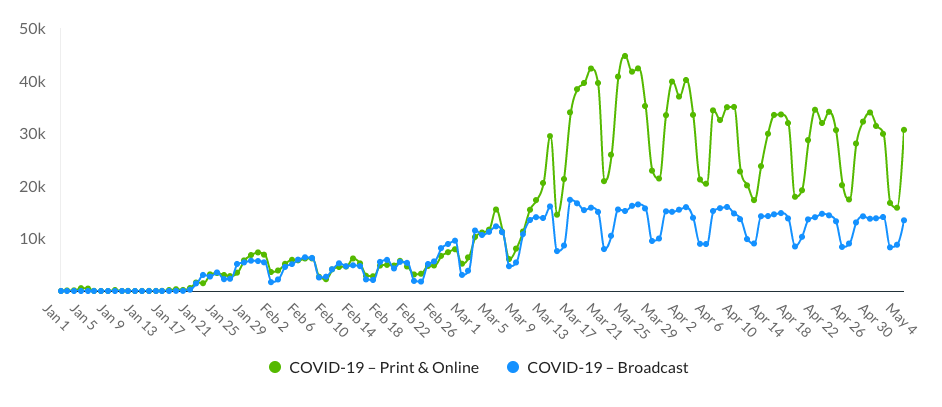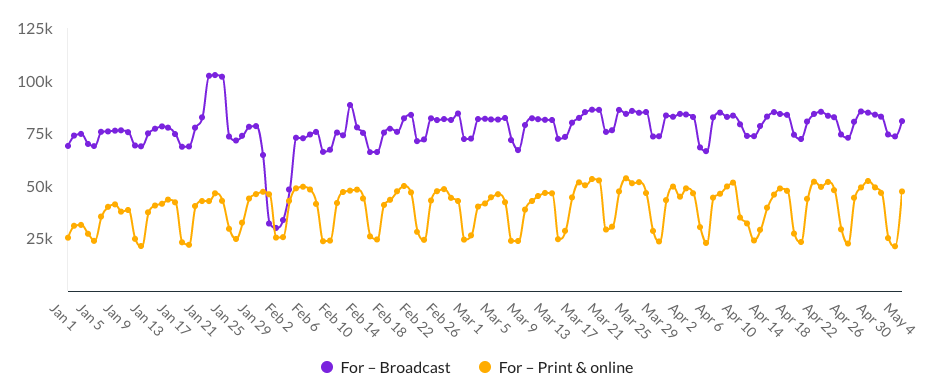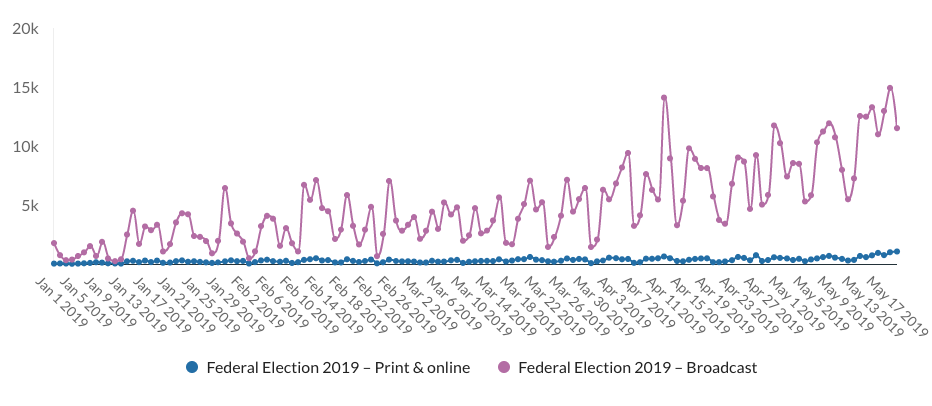
It has been impossible to avoid news about the coronavirus pandemic. All angles have been explored by the media: diagnosis and treatment, restrictions to our lifestyles, and the economical impact. Rarely has the media reported on one topic for such a length of time (bar terrorist acts, wars or elections). We expect to find that media fatigue setting in and journalists and audiences want to move on to something new. You may have experienced COVID-19 news fatigue yourself, avoiding watching TV or scrolling through Twitter to have a break.
Here, we explore the trends of COVID-19 stories in the media since the start of 2020. Using our media monitoring software Meltwater, we looked at the keywords ‘coronavirus’ and ‘COVID-19’ in print & online and broadcast media. We tracked Media Exposure: the number of daily articles being written and stories being published containing either of these keywords. We started our search on 1st January 2020.

You will notice the regular dips in the line graph, occurring every five plot points. You guessed it: these dips are at the weekend. For both online & print and broadcast, the drop off is -30 to -50% from the Friday to the Saturday. We can’t say for sure why this is, but we have a couple of suggestions:
We cross-check with a keyword commonly used in English language: the preposition / conjunction word ‘for’. We do this to confirm whether the drop in COVID-19 mentions is due to less staff working on the weekend. If the drop in media mentions for this word matches that of ‘COVID-19’, the decrease is not because the media want positive weekend stories. It is simply due to skeleton staff on the weekend.

We see that the pattern is the similar as for the Media Exposure graph for ‘COVID-19’ / ‘coronavirus’. Every five days, there is a two-day dip, marking the weekend.
We conduct a final experiment to demonstrate how significant the media conversations about COVID-19 have been. We look into the 2019 Australian Federal Election. The search looks for articles containing ‘Bill Shorten’ or ‘Scott Morrison’ in the run up to the Federal Election. Is COVID-19 more on Australia’s mind than the election of their own leaders?
2019 Federal Election

The answer is YES. The 2019 election leaders were no match for COVID-19 in the media. The y-axis of the Media Exposure graph only reaches 20k compared to 50k for ‘COVID-19’ / ‘coronavirus’!
To close off this blog post, we noted that it looks like the COVID-19 Media Exposure curve has flattened. This means different healthcare have a better chance of publishing. It is therefore time to share meaningful data or updates with media from now. There is definitely a desire from newsrooms to fill the weekend with positive sentiment and human interest stories. Sure, there are fewer reporters working on the weekend and the drop in media volumes correlates with their working rosters.
It is also a great time to start sharing your health news stories that aren’t related to COVID-19. Check out this earned media checklist to see if you are ready to go.
Sign up to our weekly analyses and healthcare industry articles by getting in touch at: [email protected]